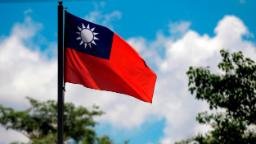Biden administration proposes $750 million arms sale to Taiwan in a move likely to anger Beijing


The administration gave notice about the intended sale on Wednesday, according to a State Department spokesperson, two congressional sources, and a notification from the Defense Security Cooperation Agency. The deal includes 40 M109A6 Medium Self-Propelled Howitzer Systems and related equipment.
“If concluded, this proposed sale will contribute to the modernization of Taiwan’s howitzer fleet, strengthening its self-defense capabilities to meet current and future threats,” the spokesperson said.
One of the congressional sources told CNN that Senate Foreign Relations Chairman Robert Menendez had already cleared the sale as part of the informal review process — a common practice in which the House and Senate Foreign Relations Committees get a heads-up on planned sales, allowing committee leadership to raise concerns, give their input or place holds.
This source said Menendez sees it “as yet another statement of the Biden administration’s serious intent to get strategy in the Indo-Pacific right, and its commitment to stand with our ally Taiwan.”
Beijing has lambasted those sales, calling them a violation of China’s sovereignty. The country’s communist government views Taiwan as part of its territory, though the two have been governed separately since the end of a bloody civil war in 1949.
New guidelines
In April, President Joe Biden dispatched an unofficial delegation to Taiwan in a show of support for the island, according to a senior administration official and a State Department spokesperson.
The State Department also announced in April that the agency had “issued new guidelines for U.S. government interaction with Taiwan counterparts to encourage U.S. government engagement with Taiwan that reflects our deepening unofficial relationship.”
At the time, State Department spokesman Ned Price said, “The guidance underscores Taiwan is a vibrant democracy and an important security and economic partner that is also a force for good in the international community.
“These new guidelines liberalize guidance on contacts with Taiwan, consistent with our unofficial relations, and provide clarity throughout the Executive Branch on effective implementation of our ‘one China’ policy, which is guided by the Taiwan Relations Act, the three Joint Communiques, and the Six Assurances,” Price said.
Shortly before leaving office in January, former Secretary of State Mike Pompeo announced the United States was lifting decades-old restrictions on interactions between American and Taiwanese officials.






